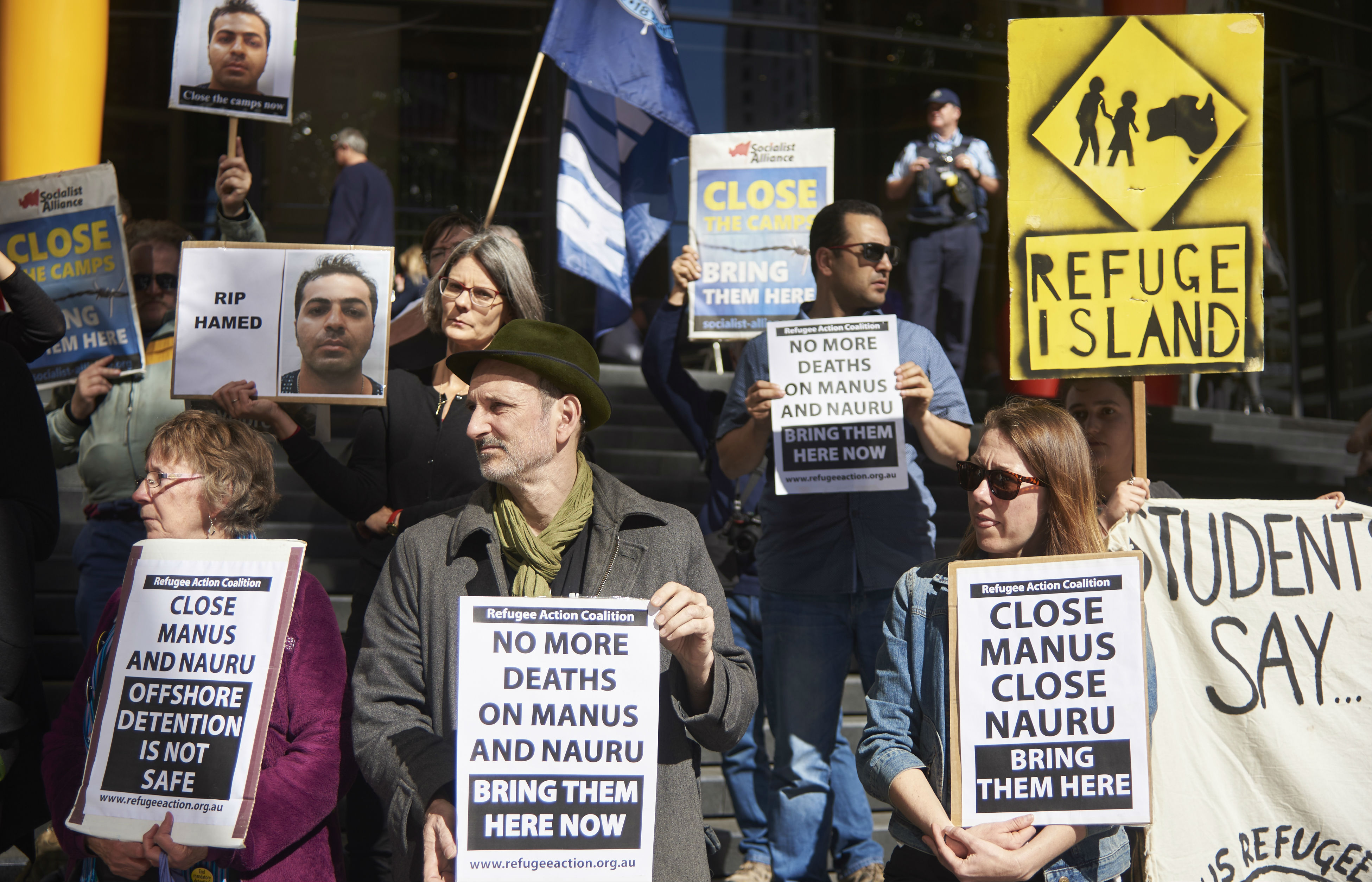The Provincial Leader of the Australian Jesuits, Fr Brian McCoy, has announced a project to bring together the Jesuits' concerns for Indigenous Australians and asylum seekers, which he described as "the bookends of rejection" in Australian history.
Fr McCoy said the arrival of the First Fleet of convicts and military from Britain in what is now Sydney in 1788 constituted the first of the bookends.
"Notwithstanding the many decent and heroic chapters that have followed, there is no denying that our nation’s triumphs and tragedies have come at great cost to our Indigenous sisters and brothers," Fr McCoy wrote on the Jesuits' Australian website this month.
"The second bookend is the reality that innocent people, who have been subjected to persecution and are seeking Australia’s protection in accordance with our international obligations, have been expelled to the margins on Manus Island and Nauru, out of sight and, for many, out of heart and mind."
He wrote that because the Society of Jesus' mission "is always and everywhere to stand with the poor and marginalised", he was launching dual Province initiatives in response to these bookends.
Fr McCoy wrote that background work on the first of these initiatives – Aboriginal and Torres Strait Islander reconciliation – had already begun and would become more visible in the coming months. Ms Anastasia Moore, the recently appointed Project Officer to promote the reconciliation initiative, had been reviewing reconciliation initiatives around Australia with a view to identifying possible strategies for the Province.
"I will soon convene a workshop comprised of Jesuits and lay people from across our ministries to assist us in further planning and implementation of our approach.
"Significant initial work on the second bookend has also already begun with the Refugee and Asylum Seeker Task Force which I set up last year. Its work was to look at what is already being done around the Province on asylum seeker and refugee issues; current and future needs in this area; the resources of the Province that could help address those needs, especially in partnership with others; what a Province-wide response might look like; and how it might be resourced, implemented and evaluated."
Fr McCoy wrote that this initiative would take up the work of the Task Force, with a project officer to be based at Jesuit Refugee Service to explore potential collaborative projects, best practice, opportunities and activities that could enable a Province-wide response on asylum and refugee issues.
"The Province will be pursuing these two initiatives together, and, where possible, activities in support of them will be coordinated to maximise their effectiveness. I commend our bookends projects to you most strongly and I ask you all to engage in this whole-of-Province process prayerfully and generously."
Last month, the Consulting Editor of the Jesuit-operated Eureka Street website, Fr Andrew Hamilton, wrote: "There is a history of sin and a history of grace, and both intermingle in the story of what has mattered to Australians over more than two centuries.
"The arrival of the First Fleet was a masterly feat of organisation and initiative, followed by all the hardships, hard work and muddle involved in building and sustaining a colony. But its foundations were the dispossession of the original inhabitants and the disruption of their lives and cultures.
"The second bookend is the way in which we have dealt with people who have come to us seeking protection from persecution. It displays the same readiness to do what it takes to secure perceived interests, and to inflict suffering on some in order to deter others. No excess of cruelty, it has seemed, could sate the cry to be tough on asylum seekers. Manus Island is the emblem of this policy. Australians respond to it with the same ambivalence they feel before Indigenous people, alternating between satisfaction that governments are doing what it takes and occasional shame when the whips and scars of the policy are seen close up."
He warned that "left unaddressed these poisons can leach further into Australian society".
"The first thing is to attend to the story of our relationships to Indigenous Australians and to refugees, not seeking condemnation or exoneration, but giving weight particularly to the human experience of the people who were participants and affected in this history. This will lead to apology, to reflection on how to make amends, and to the evolution of policies and administration that respect the humanity of those in Australia before our boats arrived and those who came by boat afterwards to seek protection. Then will our history be decently bookended."
After asylum seeker, Hamed Shamshiripour, was found dead on Australia's Manus Island on 7 August, today (10 August), Australia's bishops for migrants and refugees issued a statement saying the death "could have been prevented."
"The Australian government needs to listen to the concerns of these people and treat them with dignity," said Bishop Vincent Long Van Nguyen.
"I urge the Australian government to provide adequate amenities for those on Manus Islands, and to endorse programmes that both protect lives at sea and in its care," he continued.
PICTURE: Hamed Shamshiripour is remembered at a vigil in Sydney's CBD, 9 August, 2017. A lawyer acting for the family of Iranian refugee Hamed Shamshiripour, who died on Manus Island earlier this week, has called for an inquest into his death



 Loading ...
Loading ...